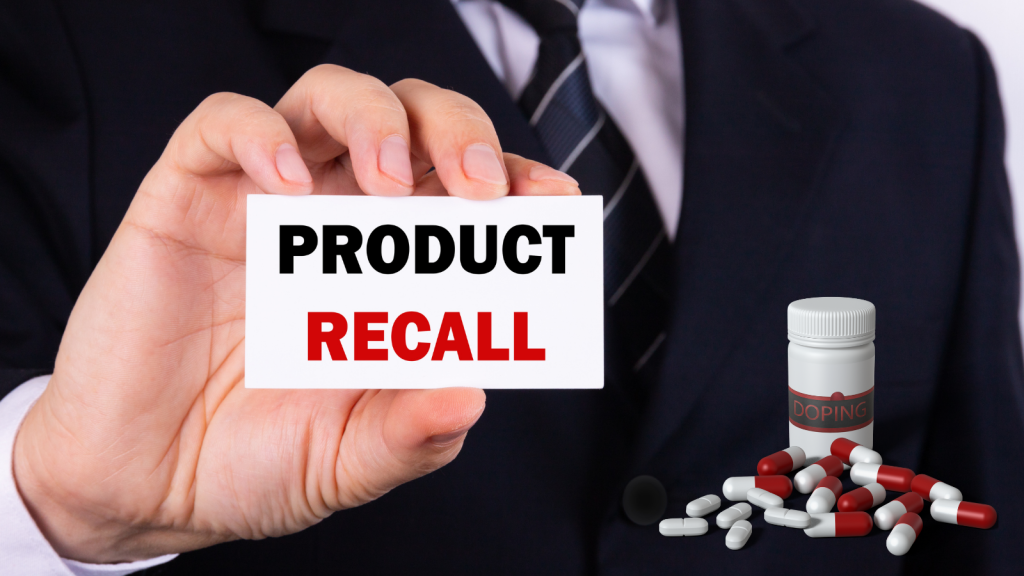Drug recalls occur when a drug is suspected or proven to be harmful.
When a drug’s harmful or side effects threaten the public, it is recalled from the market. Sometimes manufacturers recall their drugs voluntarily to protect the public.
Companies release drugs into the market after a careful examination of their safety and efficacy by the Food and Drug Administration. The FDA monitors the drugs even after they are released to keep them safe for patients, who may return them if they experience any problems or side effects.
Why are Drugs recalled for different reasons?
In a drug recall, a pharmaceutical company removes one of its drugs from the market after it has been linked to adverse reactions or potential harm. If a company knows that there is something wrong with its drug—for instance, it is too toxic or doesn’t work—it might voluntarily recall the product before anyone gets hurt. The FDA can also request that a drug be recalled after receiving reports of problems or complaints from the public.
Drug recalls are caused by a variety of factors. Sometimes, health hazards can lead to a drug being recalled—such as when PPA-containing decongestants and weight-loss drugs were discovered to increase the risk of stroke or heart attack. Other times, drugs are recalled when they aren’t tested properly or don’t have enough quality testing before they reach consumers.
- If a drug is improperly packaged or if it has misleading labeling, it must be recalled. Medicine could be recalled if instructions for dosing are poorly written or if the dose-measuring devices that come with the medicine are faulty.
- There is nothing like a risky business. To recall a drug, harmful or non-harmful substances may be contaminated during the manufacturing or distribution of drugs. In such a case, the drug is recalled.
- While it may sound mundane, the business of medicine is important in modern society. For example, if the medicine is labeled as a pain reliever, but the box contains something different, that medicine is recalled!
- If the production of a drug is of poor quality, then that drug also gets recalled. The reasons for recalling a drug are manufacturing defects related to product quality, purity, and efficiency.
If Your Medicine Has Been Recalled: Here’s What to Do
As the manufacturer, you must maintain an emergency hotline to exchange information, in case of an emergency. If the medicine you produce has been recalled and this medicine is a prescription medicine. You must take into account your Manufacturing System or Inventory System.
Also, Our Acu Process Manufacturing ERP can help you manage this as “Recall Drugs”. Want to see how inventory level tracking and recording work with APM, SCHEDULE A DEMO CALL.
As a drug manufacturer, your role for consumers
If FDA, ISO, or other authorities announced recalling of your produced medications. Your process manufacturing system must be updated or added. And it should alert regarding all that inventory that has been distributed.
You should publish content for your consumers. Something is written below.
- “If a drug you take has been called for recalling, don’t be tensed stay calm Remember that drug recalls often happen for minor reasons—a strange smell or taste, and off-color or odd texture. If you notice these things in the medicine you’ve bought, notify the pharmacist before taking it. If a medicine you’re using has been recalled, report cases related to side effects or quality to the appropriate authorities.
- Even if you don’t use drugs, check to see if they are recalled. If you have any recalled products, dispose of them safely or return them to the pharmacy. If you have kids in your home, make sure they can’t reach these medicines.
- “In some cases, drugs can be thrown into the bin. Assure to read the information on the labels or cartons of the drugs. If the medicine you are prescribed has been announced for recalling and you think that an unusual symptom may be related to the medicine you are using, you should inform your doctor immediately.”
In all types of medicinal manufacturing processes, Our Acu Process Manufacturing (APM), will help you exponentially.
GET A ZERO COST CONSULTATION: SCHEDULE A DEMO NOW

Sangeetha brings 20 years of experience in Information Technology which includes Solution architecting, building micro services, research, and evaluation of business applications, integrating apps.

